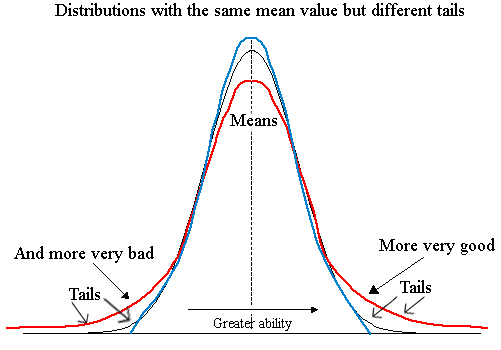Science news
1-June-2009 17:00 ET
Culture causes gender gap
Name three famous female mathematicians. It's a tough one isn't it? There was the Greek mathematician and philosopher Hypatia of Alexandria. There was Emmy Noether, described by Albert Einstein among others as the most important woman in the history of mathematics. There was Ada Lovelace, the first computer programmer.
Any others? Well yes there were and there are. But nowhere near as many women as men. There never have been.

And there never will be, according to some people. Women simply don't have the right kind of brains to excel at the highest level. That has been the widely held belief, in maths and in most other areas dominated by men. Given the chance, women have proved this prejudice wrong in almost every field. But not yet in maths.
There is for example still an extreme scarcity of women maths professors in top-ranked research universities in the US – as pointed out in 2005 by Lawrence Summers, then president of Harvard University, and now economic adviser to President Barack Obama.
New analysis
But now in an analysis of modern data published today (June 1) in Proceedings of the National Academy of Science, researchers report that the main reason for the big difference in maths performance at all levels is culture, not biology.
"It's not an innate difference in math ability between males and females," says Janet Mertz, a University of Wisconsin-Madison professor of oncology. "There are countries where the gender disparity in math performance doesn't exist at either the average or gifted level. These tend to be the same countries that have the greatest gender equality."
In the new report, Mertz and UW-Madison professor of psychology Janet Hyde set out to answer three key questions: Do gender differences in math performance exist in the general population? Do gender differences exist among the mathematically talented? Are there females with profound mathematical talent?
The answers, according to the Wisconsin researchers, are no, no and yes.
Let's look at now
The researchers studied various sets of data, such as the state standardised tests used to assess student performance under the No Child Left Behind Act, the transnational Programme for International Student Assessment, the elite International Mathematical Olympiad. They found a pattern of performance that strongly suggests that social and cultural factors are the main cause of differences in maths performance between males and females.
These factors either discourage or encourage girls and young women in their pursuit of the skills needed to master maths.
In the United States, girls at all grade levels now perform on a par with boys on the standardised mathematics tests all students take. Moreover, U.S. girls are now taking calculus in high school at the same rate as boys, and the percentage of doctorates in the mathematical sciences awarded to women in the US has climbed to 30%, from just 5% in the 1950s.
Among the mathematically gifted, more boys are still being identified than girls in the US. But the gap is narrowing and will likely continue to close as gender inequity in all areas continues to be tackled. "On average, girls have reached parity with boys in the United States and some other countries, and the gender gap at the high end is closing," says Hyde.
Do males have long tails?
 In their report, Mertz and Hyde challenge the "greater male variability hypothesis", suggested by Summers and others to explain the difference in very high performing men and women. According to this hypothesis the average ability (a statistics expert would say the "means of the distributions") of males and females might be very similar or even identical.
In their report, Mertz and Hyde challenge the "greater male variability hypothesis", suggested by Summers and others to explain the difference in very high performing men and women. According to this hypothesis the average ability (a statistics expert would say the "means of the distributions") of males and females might be very similar or even identical.
But males are more variable in ability. So more of them are very good and more of them are very bad. (A statistics expert would say that "the distribution of maths ability in males has longer tails than the distribution of maths ability in females.")
But is there good evidence for the hypothesis? "No," says the Wisconsin researchers.
They found that girls' maths scores are as variable as boys' in some countries and among some ethnic groups in the U.S. They found as many girls as boys scoring above the 99th percentile in some cultures.
This means that greater male variability in maths performance is not universal. Which strongly suggests that it is not caused by biology - by something different about male and female brains.
Culture not biology?
In fact Hyde and Mertz report that the ratio of girls to boys excelling in maths correlates quite well with measures of a country's gender equity. "If you provide females with more educational opportunities and more job opportunities in fields that require advanced knowledge of maths, you're going to find more women learning and performing very well in mathematics," says Mertz.
"US culture instills in students the belief that math talent is innate; if one is not naturally good at math, there is little one can do to become good at it," Mertz adds. "In some other countries, people more highly value mathematics and view math performance as being largely related to effort."
The difference in attitude is likely a major reason the median scores of girls as well as boys in some East Asian countries are higher than the top 10% of both boys and girls in the US on standardised transnational maths tests. Children of immigrants from these countries, girls as well as boys, tend to excel in maths, even while being raised and educated in the US.
Could do better
The gender gap in maths performance does seem to be narrowing. But Hyde and Mertz caution that the United States may fall further behind other nations in maths performance because the tests needed for No Child Left Behind include almost no complex problem-solving.
"This neglect of problem-solving skills could place US students at a disadvantage compared with their peers in countries where teaching and tests emphasize more challenging content," write Hyde and Mertz.
Finally the Wisconsin researchers note that the future of the US economy depends on American society doing a better job of identifying and nurturing mathematically talented youth, regardless of gender, race or ethnicity: "The United States could do a lot better," Hyde concludes.
More help with words
| enthusiasm | ethnic group | experiment | prediction | standard | tentative |
What's it all about?
- Name one famous female mathematician.
- Name another.
- There are nowhere near as ---- famous female mathematicians as males.
- And there ----- will be, according to some people.
- How do they explain this?
- What does an "extreme scarcity of women maths professors" mean?
- What is the main conclusion of this new study?
- Give one piece of evidence that strongly supports this conclusion.
- As far as you can in your own words, what was the first question the researchers tried to answer?
- What was the answer?
- As far as you can in your own words, what was the second question the researchers tried to answer?
- What was the answer?
- As far as you can in your own words, what was the third question the researchers tried to answer?
- What was the answer?
- What effect do social and cultural factors have on young women who might be interested in maths?
- Name one thing about females doing maths in the US that has improved in recent times.
- In your own words what does this sentence mean? "On average, girls have reached parity with boys in the United States and some other countries, and the gender gap at the high end is closing."
- In your own words as far as you can, what is the "greater male variability hypothesis"? [Use a diagram if it helps.]
- What follows from the fact that in some countries the girls' maths scores are just as variable as the boys'?
- In your own words what does this sentence mean? "In fact Hyde and Mertz report that the ratio of girls to boys excelling in math correlates quite well with measures of a country's gender equity."
- State a very important difference between the impression of maths talent that US students get, compared to what students are led to believe in some other countries.
- What does that difference in attitude probably explain?
- What does "more challenging content" mean?
- Imagine you are a member of this team of researchers. Think of one question you would you still like to answer about all this.
- What's the first thing you would like to do to help answer that question?


